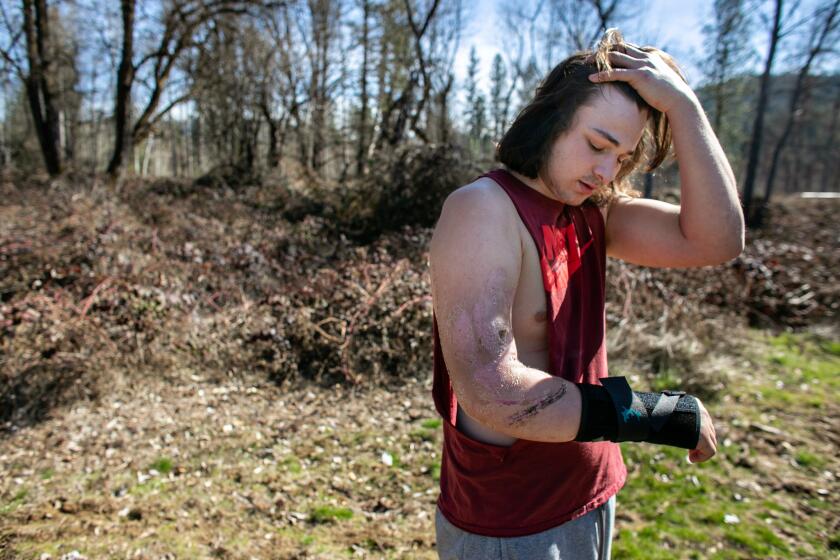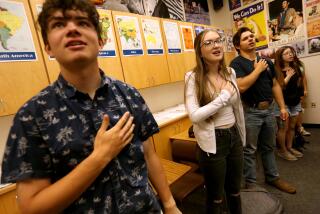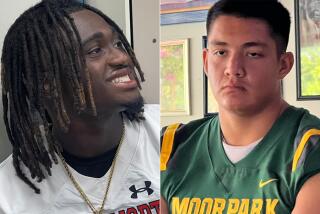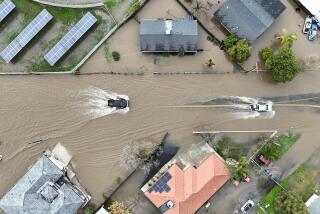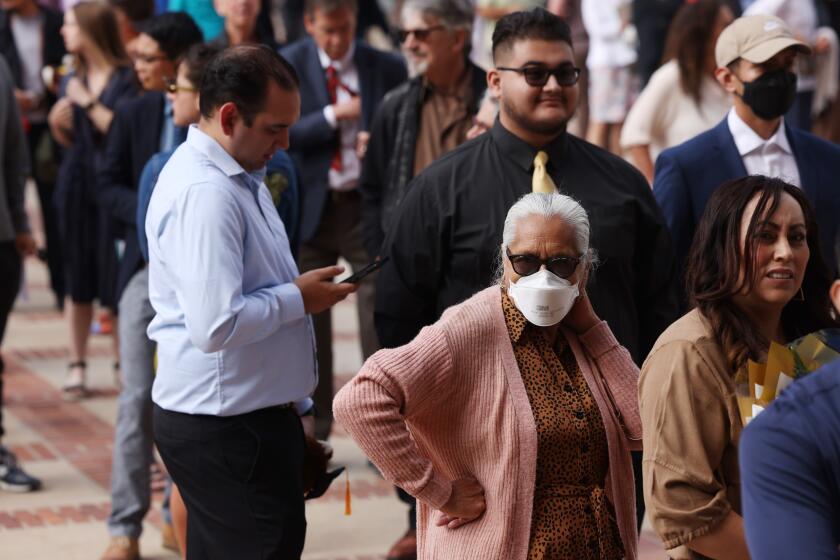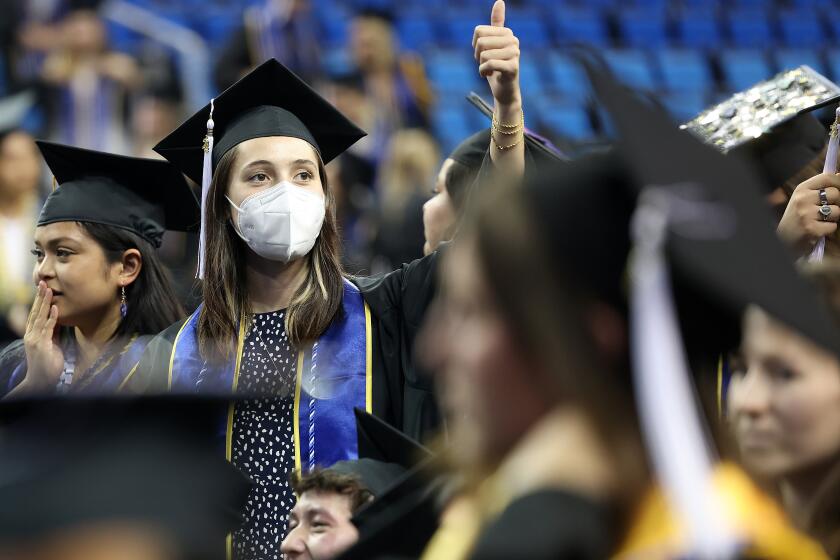COVID canceled their football season. So a rural California school did homecoming their way

The sun had just slipped behind the mountains. A spring chill and an excitement hung in the air. There was laughter, and grunting.
It was the first week of March, and the Trinity High School Wolves were, at long last, practicing football after a season upended by the coronavirus pandemic.
State health officials had just given their blessing for an abbreviated spring football season, and here in Weaverville — a Northern California logging town of 3,100 people — the overjoyed team was practicing six days a week, staying on the field late into the night, wearing brand-new white helmets.
“Every night, it’s been contagious even to us coaches,” said Coach Scott Merryman. “The kids are so enthusiastic. They’re having fun now.”
There was just one problem: The Wolves’ far-flung league, which includes rural schools across county lines three and four hours away, had already been canceled.
So Trinity High School got creative. They would play one game. They would split their own team in half, play themselves, and fill the stands.
It would be homecoming. Their way.
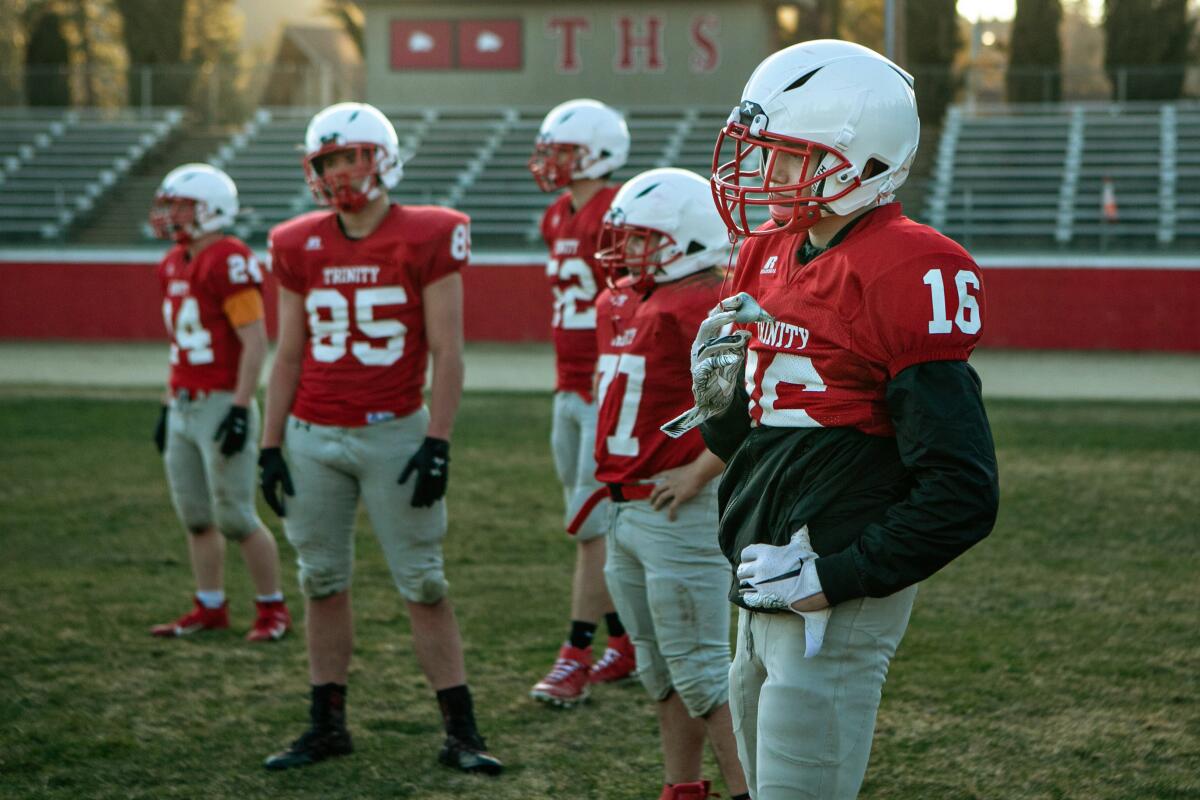
Students have been attending class in person since August in this sparsely populated county with few coronavirus cases. But the loss of sports and pep rallies and dances hit high schoolers here hard after a challenging few years.
The county shut down the campuses of Weaverville Elementary and Trinity High School in summer 2019 after the discovery of toxic black mold and asbestos. Students got used to seeing people in hazmat suits in their old classrooms. High schoolers are still learning out of portable buildings, and their gym remains gutted.
Trinity Alps Unified School District Supt. Jaime Green said his students — and this town — needed something to root for this year. They needed sports.
“I think the whole world’s going to be more appreciative, right? Maybe we all took the whole world for granted before COVID,” he said. “We all learned that things can be taken away at a moment’s notice.”
A California lumber town has repeatedly bounced back from adversity —fires, economic downturns, COVID-19. Like the town, Chase Kirby is a survivor.
Cross country was the first high school sport to resume competition in Weaverville. The team’s meets don’t usually attract a lot of fans, but at its first meet in February, student spectators gathered around the starting line and held up a big homemade banner for the team to run through.
“The spectator-to-athlete ratio was like 5 to 1,” said coach Joanne Harper, laughing. “It was fun for cross country to be a glorified sport. They’re just glad to have a release, being so young, to have an opportunity to play.”
When football practices resumed a few days later, Shannon Thompson, a student services clerk at Weaverville Elementary, saw an immediate change in her son, Brian, a 16-year-old sophomore.
“He’s always loved school, but for the first time this year, he’s felt like, ‘What’s the point of going? There’s nothing to look forward to.’ I was like, oh, buddy, let’s not think like that. Let’s try to stay positive. ... To see him come home from practice and how happy he is and staying late and running through drills — I just feel like he’s back to being Brian.”
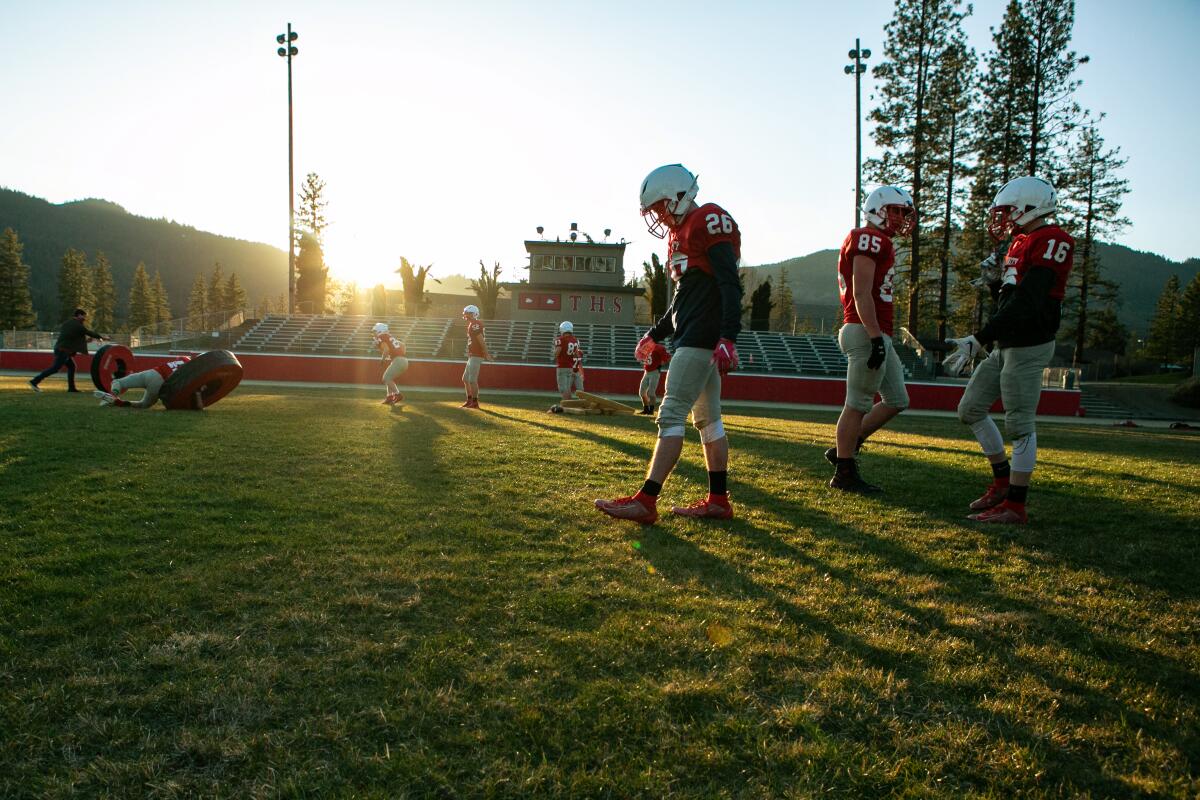
Friday, March 12, was the big day.
There would usually be a homecoming parade on Main Street that the whole town shows up for, but the pandemic scrapped that. And it would usually be standing-room-only in the bleachers, but capacity was limited for social distancing.
That didn’t matter to the players, the cheerleaders and their fans, who whooped and hollered from behind masks and face shields.
People chowed down on nachos and Frito chili pies in the stands. Everyone was decked out in the school colors, red and white. A stuffed gray wolf was strapped to an all-terrain vehicle — a makeshift homecoming float — and driven around the field.
Families backed pickup trucks right up to the field and sat on lawn chairs in their truck beds.
“This is the first thing where it’s like, maybe life will be back to normal before we know it. We’re real hopeful,” said Kathy Fornaciari, who, along with nine other family members, crammed into a Ford truck to watch her granddaughter, Hannah, play powderpuff flag football before the big game.
The temperature dipped to 45 degrees as the Wolves — half wearing red, half wearing white — faced off.
They were evenly matched. The white team got off to an 8-0 lead, but the red team came roaring back. Scotty Rupp, a 17-year-old senior, ran a crowd-pleasing 95 yards for a touchdown that would give the red team a 12-8 lead going into halftime.
The white team battled back in the fourth quarter with a safety and a touchdown, taking a 16-12 lead.
But with two minutes to go, Rupp caught a touchdown pass. Victory: red team.
There was no trophy. And the boys all became teammates once again, as soon as the game was over.
But Rupp said it was a night he would never forget. A chance “to have one last game at home, under the lights.”
“It’s been quite frustrating at times, wanting to play, all the things we missed,” he added. “But we got what we got, and we make the best of what we have.”
More to Read
Start your day right
Sign up for Essential California for news, features and recommendations from the L.A. Times and beyond in your inbox six days a week.
You may occasionally receive promotional content from the Los Angeles Times.
